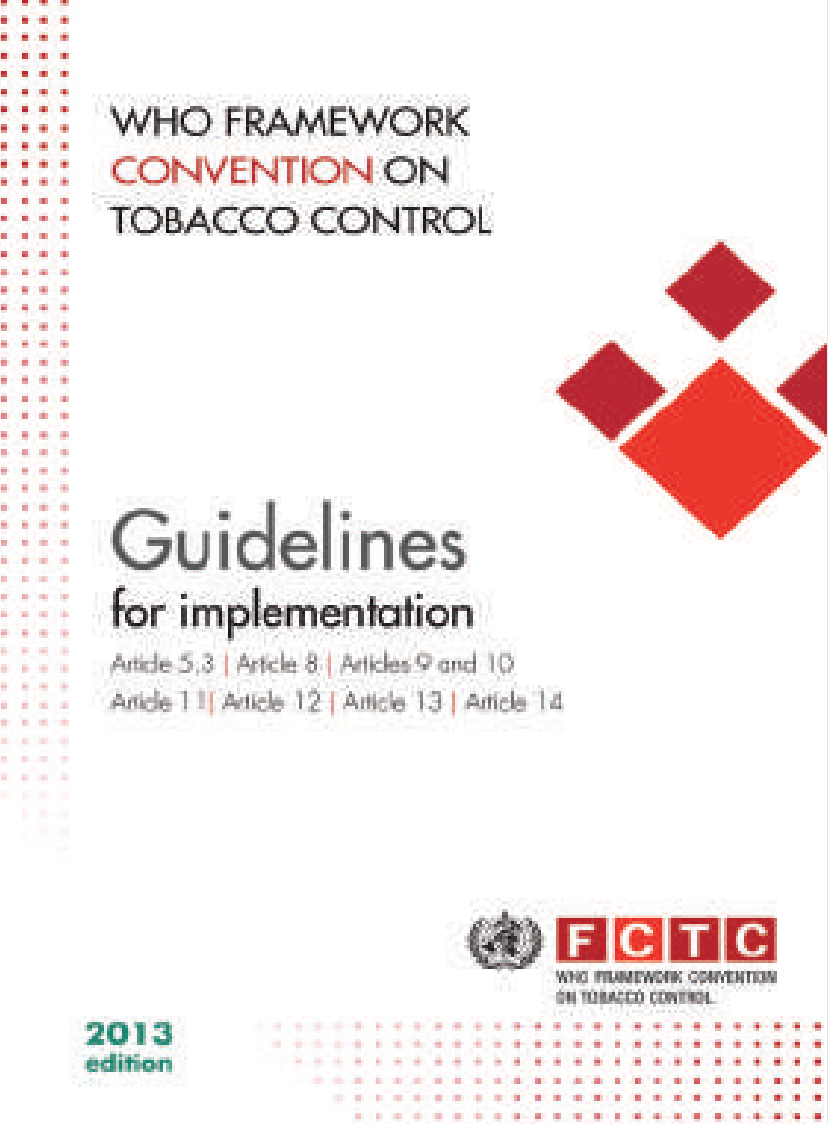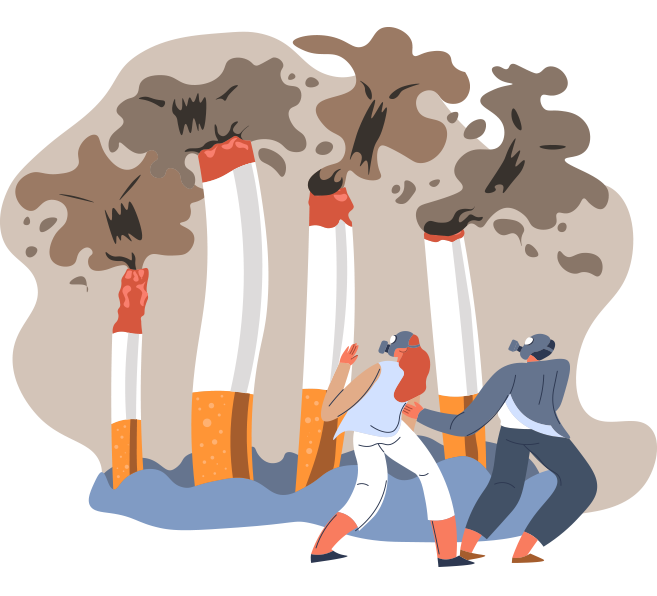WHO FCTC: A Comprehensive Package of Measures

Designed to counter the global tobacco epidemic, the World Health Organization (WHO) Framework Convention on Tobacco Control (FCTC) is the first public health treaty negotiated under the auspices of the WHO. It is a landmark legal instrument in international, regional, and national tobacco control that has changed the paradigm of public health policies. At present, 181 governments, representing 90% of the world's population, are Parties to the WHO FCTC and have committed to implementing the treaty's various lifesaving measures. Indonesia is the only ASEAN country that has not ratified the WHO FCTC.
The WHO FCTC provides a framework for guidelines and protocols to reduce tobacco consumption through evidence-based supply and demand regulatory interventions, among others: (a) protection of public health policies from commercial and vested interests; (b) raising taxes on tobacco; (c) banning smoking in public places; (d) use of pictorial health warnings; (e) bans on tobacco advertising, promotion and sponsorship; (f) controlling illicit trade in tobacco products; (g) providing alternative livelihoods to tobacco farming; (h) preventing sales to and by minors; and (i) collecting and sharing data on tobacco use and prevention efforts.
Because tobacco poses a major threat to life and health, it also threatens sustainable global and national development. A multisectoral, whole-of-government and whole-of-society approach is therefore essential for the implementation of the WHO FCTC as a means to achieving the Sustainable Development Goals (SDGs) and to meet the global target of a 30% relative reduction in tobacco use prevalence among persons aged 15 and over by 2025 as agreed by WHO Member States.
Within ASEAN, most countries have made significant progress in implementing measures to reduce tobacco use in accordance with the WHO FCTC since its entry into force in 2005.
Over the past several years, ASEAN member states have demonstrated growing commitment and leadership in adopting FCTC-compliant policies and interventions, particularly to (a) protect the public from exposure to secondhand smoke by restricting smoking and ensuring smoke-free environments in public places and workplaces (Article 8) and (b) raise public awareness of health risks of tobacco use, help motivate quit attempts, and discourage tobacco use uptake through prominent pictorial health warnings on all tobacco packages (Article 11).
That said, full implementation of the WHO FCTC remains a work in progress, and further strengthening of national tobacco control policy is needed in order to achieve the objective of the treaty. This includes reducing tobacco product affordability through tobacco tax systems strengthening and regular excise tax increases (Article 6); enforcing a comprehensive ban on tobacco advertising, promotion and sponsorship, including plain or standardized tobacco packaging, prohibiting corporate social responsibility (CSR) activities by the tobacco industry, and banning retail display of tobacco products (Article 13); and securing sustainable financing for tobacco control (Article 26), such as through establishment of health promotion/tobacco control mechanisms funded through tobacco surcharge taxes. It is also widely acknowledged that most ASEAN member states still lag in safeguarding their public health policies from tobacco industry interference (Article 5.3), which is a major obstacle to effective tobacco control implementation.


